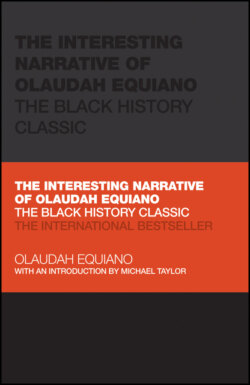Читать книгу The Interesting Narrative of Olaudah Equiano - Olaudah Equiano - Страница 14
THE NARRATIVE'S IMPACT
ОглавлениеInitial reviews of the Narrative in the British periodical press – the great engine of enlightened public discourse – were mixed.
The Monthly Review of June 1789 believed that the work of ‘this very intelligent African’ was well calculated to ‘increase the odium that has been excited against the West-India planters’. Yet the reviewer cannot quite believe that an African was capable of writing a book: ‘It is not improbable that some English writer has assisted him in the compilement of his book; for it is sufficiently well-written’. The General Magazine and Impartial Review praised the text's ‘truth and simplicity’, finding that ‘the author's account of the manners of the natives of his own province [was] interesting and pleasing’.
Several reviewers agreed that Equiano's meditations on Christianity were weak and, frankly, boring, and among them was the radical philosopher Mary Wollstonecraft. Writing under a pseudonym in the Analytical Review, she finds Equiano's descriptions of brutality so powerful as to ‘make the blood turn in its course’. Yet she also finds ‘the long account of his religious sentiments and conversion to methodism quite tiresome’. Wollstonecraft concludes that ‘a few well written periods’ could not elevate the Narrative beyond the ordinary: Equiano's volumes did ‘not exhibit extraordinary intellectual powers’, and merely placed him ‘on a par with the general mass of men, who fill the subordinate stations in a more civilised society than that which he was thrown into at birth’. In the same vein, Richard Gough in the Gentleman's Magazine concluded that the second volume of the Narrative, which begins after Equiano's manumission and often devolves upon his spirituality, was ‘uninteresting, and his conversion to methodism oversets the whole’.
Notwithstanding the critics, the Narrative sped through ever more editions on both sides of the Atlantic, and the sympathetic elements of the public hailed Equiano as a political and literary hero; in Ireland alone, one edition sold 1900 copies on the back of a wondrously well received speaking tour. (Over 50 years later, the Irish would give a similarly rapturous reception to the formerly enslaved American abolitionist Frederick Douglass.)
This is not to say that the Narrative conferred immediate political benefits on the abolitionist cause. Despite the promise offered by the Dolben's Act of 1788, which imposed the first regulations upon the British slave trade, Wilberforce's efforts to advance abolitionist legislation through Parliament failed repeatedly between 1791 and 1793. There were powerful interests still arrayed in support of slavery, and many in British society were profiting from it. People also felt sympathy for the British Caribbean planters trying to make a living. And when the French Revolutionaries executed Louis XVI and declared total war on monarchist Europe, any political reform which spoke of equality or liberty – let alone fraternity with Africans – was doomed to failure. Indeed, as Pitt the Younger's Tories enacted a series of repressive conservative laws, Equiano himself fell under suspicion both as a member of the radical London Corresponding Society and as a friend of its founder, Thomas Hardy.
